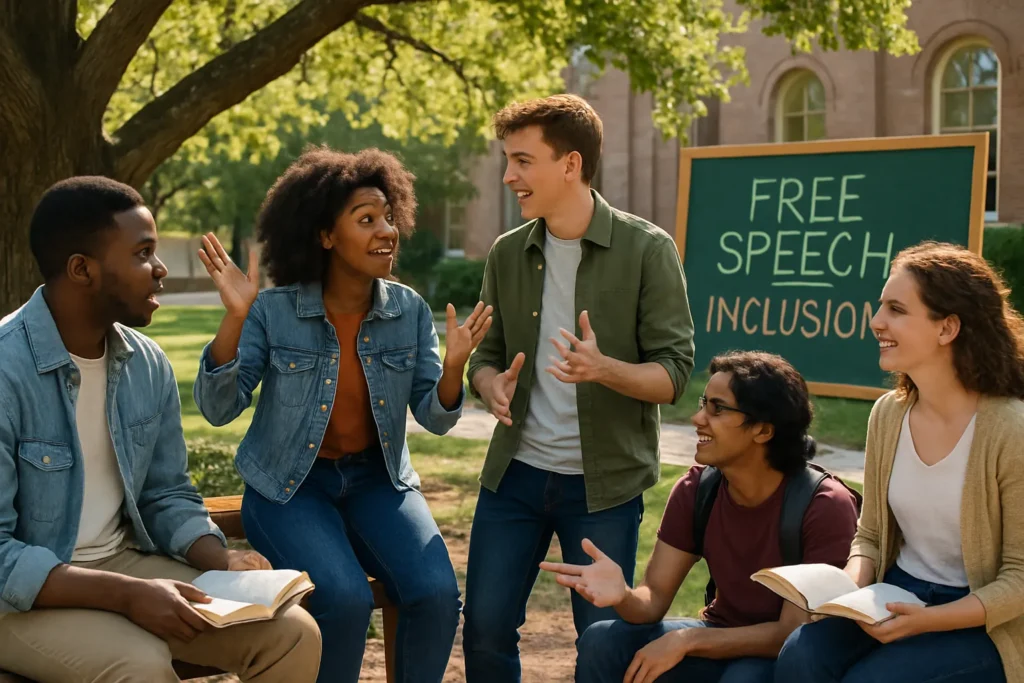The Unfolding Controversy: When Commencement Turns Contentious
On what should have been a straightforward celebration of achievement, Claremont McKenna College’s graduation ceremony found itself at the swirl of a national debate. Salman Rushdie’s withdrawal as keynote speaker became more than a calendar change; it emerged as a touchstone for pressing issues that roil American campuses—chief among them, the clash between freedom of expression and calls for genuine inclusion. The episode began quietly, with administrators announcing the novelist as the event’s honorific voice. But for many Muslim students and advocacy groups, Rushdie’s presence was fraught with pain.
According to statements from the Claremont Colleges Muslim Students Association (MSA), concerns simmered behind the scenes well before news broke. Students described lengthy email exchanges and face-to-face meetings with administrators, expressing both disappointment and a sense of exclusion. Social media soon amplified these sentiments; Instagram posts and online campaigns highlighted solidarity with peers hurt by Rushdie’s past remarks on Islam and Palestine—a controversy not new for Rushdie, whose 1988 novel “The Satanic Verses” triggered global furor and threats against his life.
What followed was a wave of protest that extended beyond campus borders. The influential Council on American-Islamic Relations publicly urged for a more thoughtful platform, citing Rushdie’s critiques of Islam and comments on the Israeli-Palestinian conflict. Days before the ceremony, news came that Rushdie had chosen to step aside. Claremont McKenna’s president, Hiram Chodosh, clarified: this was “his alone and completely beyond our control.” Still, the institution maintained a door open for Rushdie in the future.
Freedom of Speech vs. Respect for Community: The College Dilemma
A closer look reveals this was never simply about one man or one speech. At stake are two of academia’s most cherished, but sometimes colliding, values. On one hand, the right to robust debate and artistic provocation remains foundational. The American Association of University Professors (AAUP) has long argued that free inquiry—even, or especially, when uncomfortable—serves the democratic project of higher learning. Rushdie himself has been a steadfast champion of that principle, famously surviving an attack in 2022 and only reaffirming his belief in unfettered expression afterward.
Yet, as Harvard historian Randall Kennedy reminds us, “free speech is not freedom from consequence.” When a community feels collectively harmed—particularly a community already vulnerable to prejudice—platforming certain voices can undermine the very inclusion colleges claim to prize. The college’s Muslim Student Association put it succinctly: their concern was not about stifling dialogue, but about the “tone-deaf disregard for those whose identities have so often been a target” of the speaker’s criticism.
The reaction at Claremont McKenna is hardly unique. Campuses from coast to coast have borne witness to similar reckonings. Whether by student petition or walkout, the inclusion-vs-expression debate has defined recent years. The complexity is rarely lost on administrators. As President Chodosh’s statements make clear, keeping lines of communication open is often the only way forward. Yet, in practice, such moments expose deep fractures—fractures often widened by broader political climates in which conservative pundits thrill at portraying campus activism as censorship or weakness.
“Free speech must not trample on dignity or cultural belonging. Our job as educators is to navigate that tension with openness, not false neutrality.”
— Dr. Aisha Mahmood, Professor of Comparative Literature
What stands out is how such incidents invite commentators—many on the right—to misrepresent the aims of students fighting to be heard. There’s a critical difference between disagreeing with a speaker and collectively demanding a more conscious approach to inclusion. To conflate the two, as so many headlines do, is to ignore the evolving reality of today’s college communities.
What Comes Next: Seeking Unity Without Silence
Beyond that, the college pivoted swiftly. Dr. Richard Heinzl, a humanitarian best known as the founder of Doctors Without Borders Canada and now CEO of a genomics company, stepped in as keynote. His career stands in stark contrast to the polarizing debate; his humanitarian credentials bolstered the college’s promise to platform voices reflective of both compassion and global perspective. And so, the page turned—even if the lessons linger.
One might ask: what should colleges do when the mere invitation to a speaker exposes the fault lines in their own values? This is less a puzzle with a neat solution and more an ongoing negotiation. Progress, as noted by Georgetown sociologist Shadi Hamid, is found in the uncomfortable middle: “Institutions must remain open to contestation, not terrified of it.” The challenge is not preventing all offense, but balancing robust debate without reinforcing the alienation of marginalized students.
Recent Pew Research data underscores just how much the landscape has shifted. A majority of college students now say it’s essential to avoid hateful or disrespectful speech on campus, even if that means restricting certain speakers. This is not about silencing dissent; it’s about forging an environment where all feel recognized—a core tenet of progressive values.
A wider lens reminds us that Salman Rushdie’s story is too complex to be flattened into one of victimhood or villainy. His courageous defense of free speech—and his survival of violence directed against it—deserves reflection. At the same time, students’ desire for a ceremony unscarred by controversy should not be dismissed as fragility. Rather, as Columbia professor and author Jelani Cobb emphasizes, “it’s a sign of collective maturity when a campus not only tolerates dissent, but listens to it.” True inclusion isn’t the erasure of contentious voices. It’s the willingness to keep asking hard questions, and the wisdom to know when to listen.

